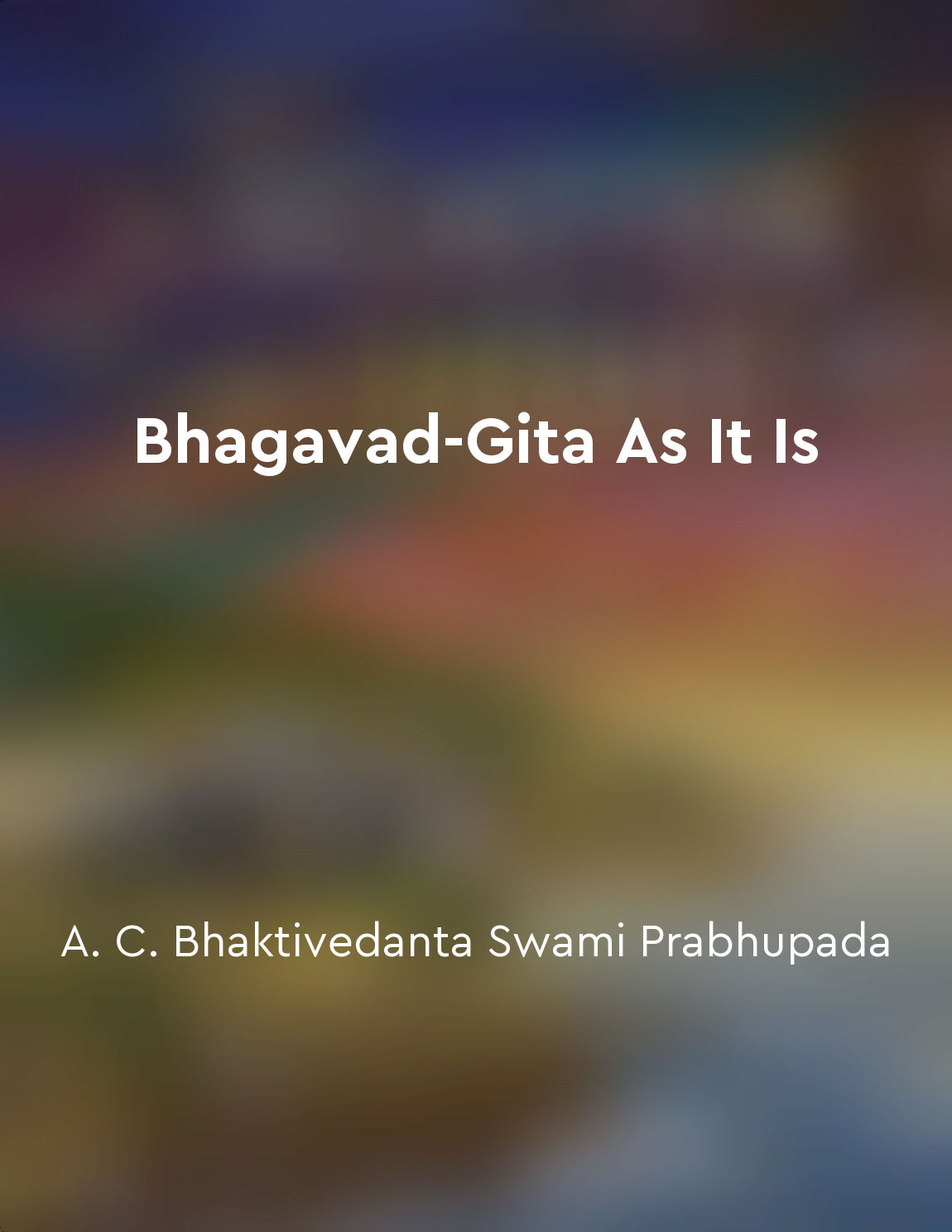The concept of karma played a significant role in Vedic beliefs from "summary" of The Ancient History of India, Vedic Period by K. C. Singhal,Roshan Gupta
The idea that one's actions have consequences, either in this life or the next, was a central tenet of Vedic beliefs. This concept, known as karma, was deeply ingrained in the worldview of the ancient Vedic people. According to their beliefs, every action, whether good or bad, would eventually come back to influence one's fate. The concept of karma served as a moral compass for the Vedic society, guiding individuals in their actions and decisions. It encouraged people to act ethically and virtuously, as they believed that their actions would determine their future. This belief in karma also helped maintain social order and harmony, as individuals were motivated to behave in accordance with dharma, or righteousness. Furthermore, the idea of karma provided an explanation for the inequalities and injustices present in the world. It suggested that these disparities were a result of past actions and not merely a matter of chance or fate. This belief in karma offered a sense of consolation and hope to those experiencing hardship, as it implied that their suffering was not meaningless but rather a consequence of their actions. In addition to shaping individual behavior, the concept of karma also influenced religious practices and rituals in Vedic society. Many rituals were performed with the intention of accruing positive karma and ensuring a favorable destiny in this life or the afterlife. The Vedic texts contain numerous references to the importance of performing one's duty and fulfilling one's responsibilities in order to earn good karma.- The concept of karma was a foundational belief in Vedic society, shaping the moral, social, and religious aspects of life. It provided a framework for understanding the complexities of human existence and offered a sense of justice and order in an unpredictable world.
Similar Posts
Treat everyone with love and respect
The teachings of the Bhagavad Gita emphasize the importance of treating everyone with love and respect. The Gita teaches us tha...
Vinamrata aur sahanubhuti ka khayal rakhein
Prabhu Shri Krishna ne Arjun se Vinamrata aur sahanubhuti ka khayal rakhne ki salah di hai. Iska arth hai ki humein dusron ke p...

The importance of knowledge and wisdom
Knowledge and wisdom are essential elements in the path of self-realization and spiritual growth as described in the BHAGAVAD G...

The importance of preserving Hindu heritage and traditions
Preserving Hindu heritage and traditions is crucial to maintaining the rich tapestry of history and culture that has shaped the...

The importance of preserving Hindu heritage and traditions
Preserving Hindu heritage and traditions is crucial to maintaining the rich tapestry of history and culture that has shaped the...
The Law of Intention and Desire reminds us to set clear intentions and align our desires with the universe
The Law of Intention and Desire teaches us that when we introduce our intentions and desires to the universe, they have the pow...

Understanding the eternal soul
The concept of the eternal soul is a central teaching in the Bhagavad-Gita. According to the Gita, the soul is eternal and inde...
Hindu deities represent different aspects of life
In the vast and diverse pantheon of Hindu deities, each god and goddess symbolizes various aspects of life and the universe. Th...

